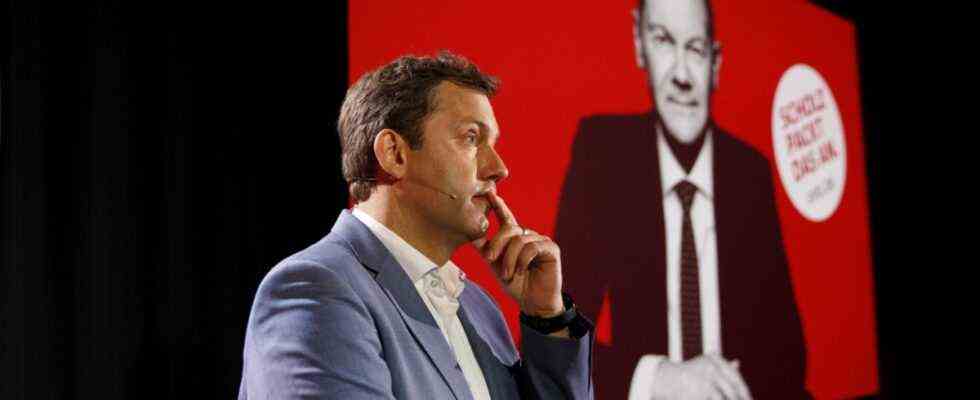It should be high time for Lars Klingbeil to change jobs. He has been Secretary General of the SPD since the end of 2017, almost four years. It’s not that long in and of itself, but the years must have felt two or three times as long. If you count the acting chairmen, he has already served eight bosses. During this time, the party had almost split up and then reported back spectacularly in the federal elections.
Now the co-chairman Norbert Walter-Borjans has announced that he will not run again in December. Because the SPD has been led by a dual leadership since 2019, at least the position of Walter-Borjans must be filled. But who knows, whether his partner, Saskia Esken, also wants to become a minister in the near future and will have to resign from the chair.
Getting involved with new chairmen again? This time, Klingbeil himself is considered the favorite for the chief position. As Defense Minister, he is also under discussion. In the party it is said: If Klingbeil wants, he can become chairman. Next week the board wants to submit a personnel proposal.
The story with Franz Müntefering and the piercing
Hardly anyone knows their way up and down in the SPD as well as Klingbeil, 43. He was always in demand as a suggestion box for chairman Martin Schulz (2017-2018). Under Andrea Nahles (2018 – 2019), he had to endure the frustration of the base about the grand coalition. After its failure, Klingbeil steered the party through a tough six-month search for chairmanship with 23 regional conferences. The fact that he did not enter the competition himself was due to the fact that he had not found a team partner for the double top.
At that time, Klingbeil was already considered a reserve of leadership: someone who moves confidently in social networks, often wears white sneakers and likes hip-hop concerts: With him, the SPD no longer looks so old-fashioned. With the stringent election campaign that Olaf Scholz is likely to lead to the Chancellery, he has proven his skills as a manager. And he showed his nerve: even when the SPD had been concreted at 15 percent for months, he stuck to the strategy. At the same time, he is characterized by a remarkable adaptability, otherwise he would hardly have been able to serve so many different chairmen. He played a major role in the fact that Scholz, as candidate for chancellor, and Esken and Walter-Borjans, as party leaders, resolved their conflicts. He kept the place together by mediating.
In the Bundestag faction, Klingbeil belongs to the conservative “Seeheimer Kreis”, one of the three wings. But he was not always perceived as rather conservative. When he came to the Bundestag for the first time in 2005, as a successor, he had a piercing in his left eyebrow, and Franz Müntefering introduced him to the parliamentary group as follows: “Lars is a young socialist – and you can tell from him.” He soon took off the piercing.
Reorientations seem to be a constant in his biography. Klingbeil grew up in a soldiers’ household in Munster, Lower Saxony. But then he did community service. The attacks of September 11th changed his relationship with the Bundeswehr: He was just in New York for an internship at the Ebert Foundation. As a schoolboy he demonstrated against the education policy of Prime Minister Gerhard Schröder. The motto at the time: “Schoolchildren are getting stupid thanks to Gerhard Schröder”. As a political student, he then worked in the parliament’s office.
Klingbeil now has his own parliamentary office, this time conquering the constituency with 47 percent of the vote. There, in Soltau, is also the “Rote Bahnhof”, from where his people controlled the constituency election campaign. If the Klingbeil train comes up in a few years, it could have started from there.

